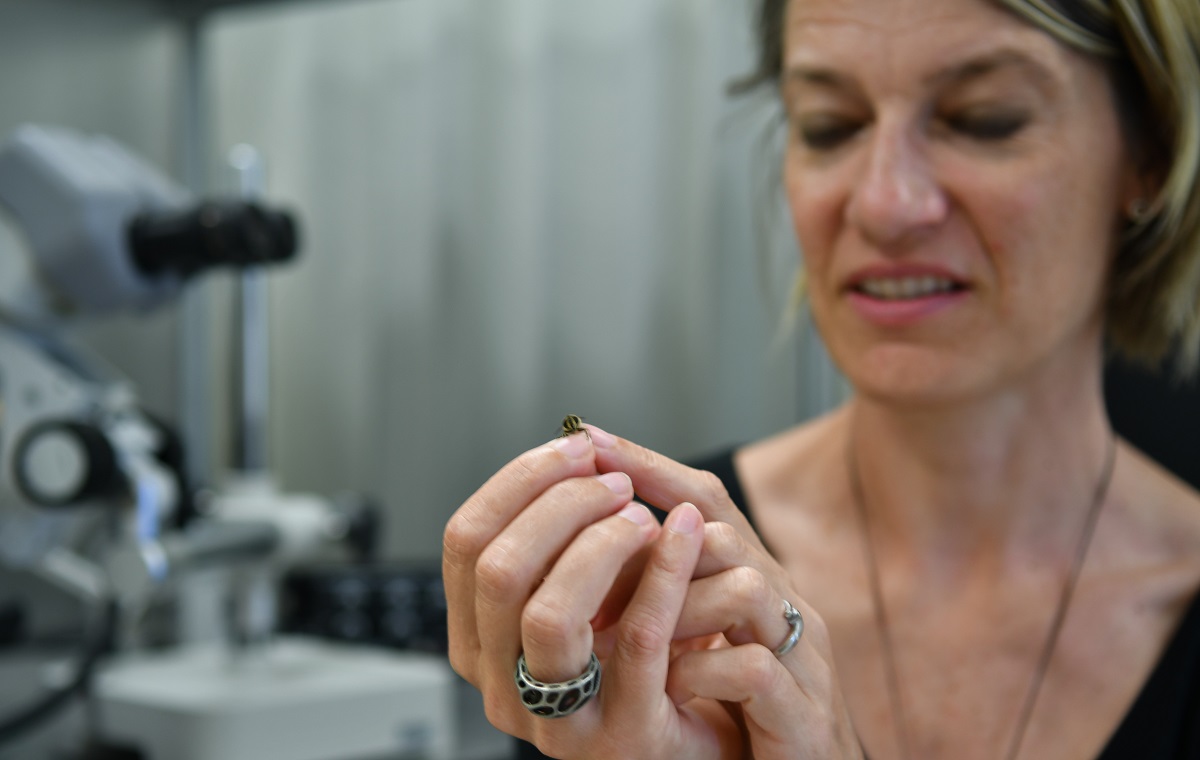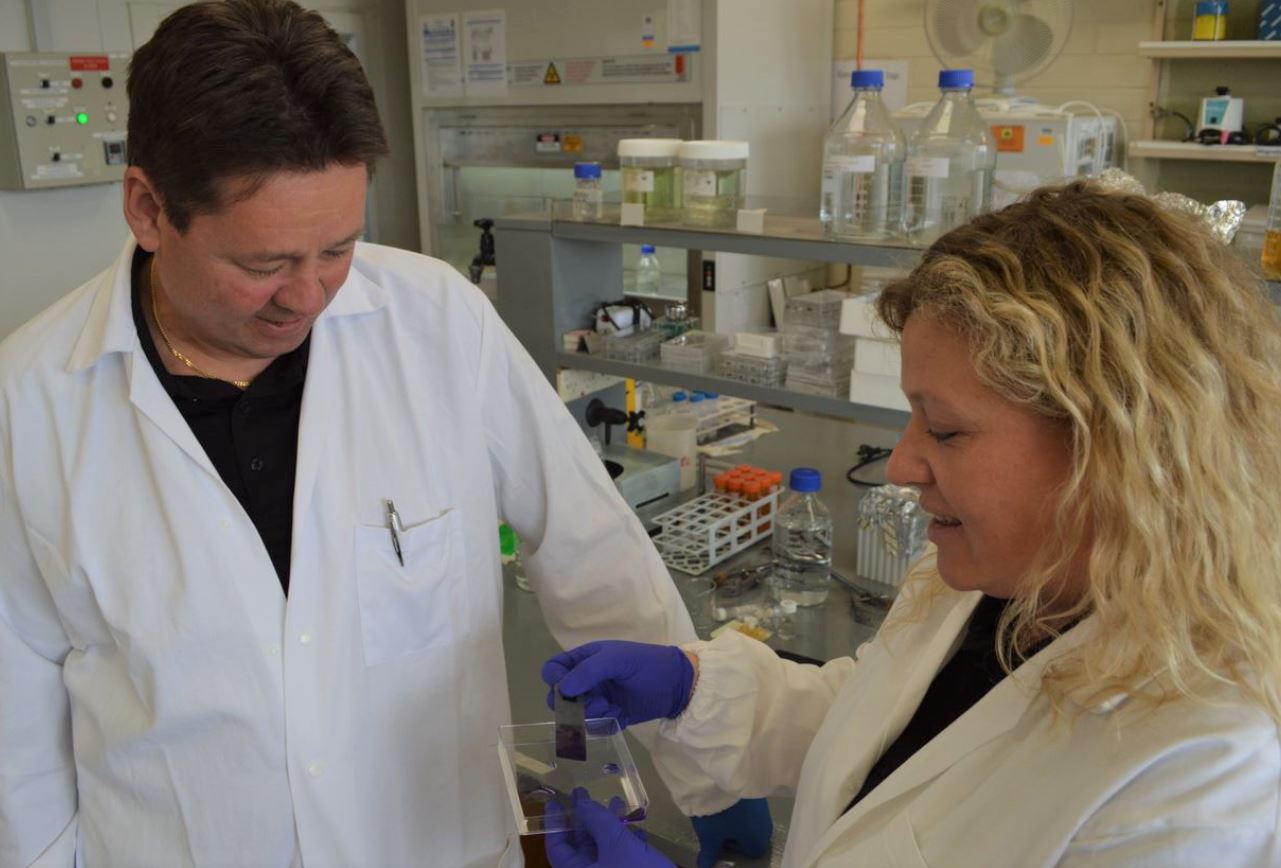
An eco-friendly solution for controlling biofouling in oceans, and understanding how the brains of hoverflies and honey bees can make such fast, accurate decisions while flying, are among five projects led by Flinders University researchers that have received ARC funding in its latest round of grants.
Flinders’ Professor Karin Nordström (College of Medicine and Public Health) will work with Macquarie University’s Professor Andrew Barron to explore how hoverflies and honey bees, with tiny brains and sensory systems, excel at making fast and accurate decisions while flying. “Life or death decisions: making fast, accurate choices in a complex world” is a $533,000 Discovery Project (DP210100740) that will combine brain recordings with flight analyses and computational modelling to generate new knowledge on how animals may utilise movements to simplify information sampling. This should provide substantial benefits for neuroscience, and for enhancing performance of autonomous robotic systems operating in challenging environments, such as disaster relief, mining and remote exploration.
Professor Mats Andersson and Associate Professor Sophie Leterme (from the College of Science and Engineering) will research coatings for the control and eradication of unwanted marine biofilms. Biofilms grow on all surfaces and environments, posing environmental threats and costly eradication efforts, so this $445,000 Discovery Project (DP210101243) aims to develop novel electrically conducting carbon-based paints that are stable in marine environments, and investigate how marine biofilms respond to these coatings. This could result in a green solution for controlling the biofouling of surfaces immersed in oceans.
Professor Sarah Wendt, Associate Professor Kristin Natalier (College of Humanities, Arts and Social Sciences) and Dr Kate Seymour (College of Education, Psychology and Social Work) will study ways to strengthen Australia’s Domestic and Family Violence Workforce. This $275,000 Discovery Project (DP210101214) aims to generate evidence-based research on the nature of work within the domestic and family violence (DFV) sector, and the implications for the DFV workforce across victim, perpetrator and Aboriginal specialist services. Expected outcomes include workforce development strategies that best respond to the needs of DFV work.

Associate Professor Robyn Meech (College of Medicine and Public Health) and Partner Investigator Associate Professor Michael Downes (from the Salk Institute of Biological Studies) will investigate a novel metabolic pathway in intestinal stem cells. The $472,000 Discovery Project (DP210103065) recognises that gut is the most rapidly renewing tissue in the body, driven by a highly active stem cell niche that are critically regulated by bile acids. Disruption of bile acid homeostasis has profoundly adverse effects on intestinal renewal and hence gut health, so this project aims to define the critical role of a novel enzyme called UGT8 in controlling intestinal stem cell response to bile acids.
Associate Professor Udoy Saikia, Professor Susanne Schech (from the College of Humanities, Arts and Social Sciences) and ANU researcher Professor Andrew McWilliam have received $212,000 Linkage Project (LP200100149) to study the impact of the Australian Seasonal Workers Programme and subsequent well-being of migrant workers and their families in Timor-Leste (East Timor). Creating a sound method to measure the impact of temporary labour migration on well-being across various aspects of life will prove especially useful for researchers to evaluate the development impact of other Australian aid funded labour migration schemes.
Flinders University researchers are also involved as collaborators in other new ARC grants, including:
Professor Fran Baum, director of the Southgate Institute, Flinders College of Medicine and Public Health, on the ANU-led Linkage Project “Understanding engagement to regulate the commercial determinants of health”.
Professor Gavin Prideaux, Flinders Palaeontology, College of Science and Engineering, will work with the University of Adelaide-led Discovery Project entitled “Fire and Rain: Drivers of the deep-time ecosystem assembly in Australia”.
Dr Martin Breed, College of Science and Engineering, will collaborate with the University of WA “Saving seagrass from climate change” Discovery Project.
Dr Bart Eijkelkamp, College of Science and Engineering, will work with a new University of Newcastle Discovery Project: “Bacterial polycyclic aromatic hydrocarbon transport and degradation”.
Dr Alessandro Antonello, College of Humanities, Arts and Social Sciences, will support the University NSW-led Discovery Project, entitled “Antipodean Geology: A Modern History of Southern Hemisphere Earth”.
Professor Paul Ward, College of Medicine and Public Health, is a collaborator on a new UniWA Discovery Project examining “Social practices of oral health in Australian preschool children”.
Associate Professor Marinella Marmo, College of Business, Government and Law, is a collaborator on a new Monash University Discovery Project: “Analysing interactions within the criminal deportation system”.

